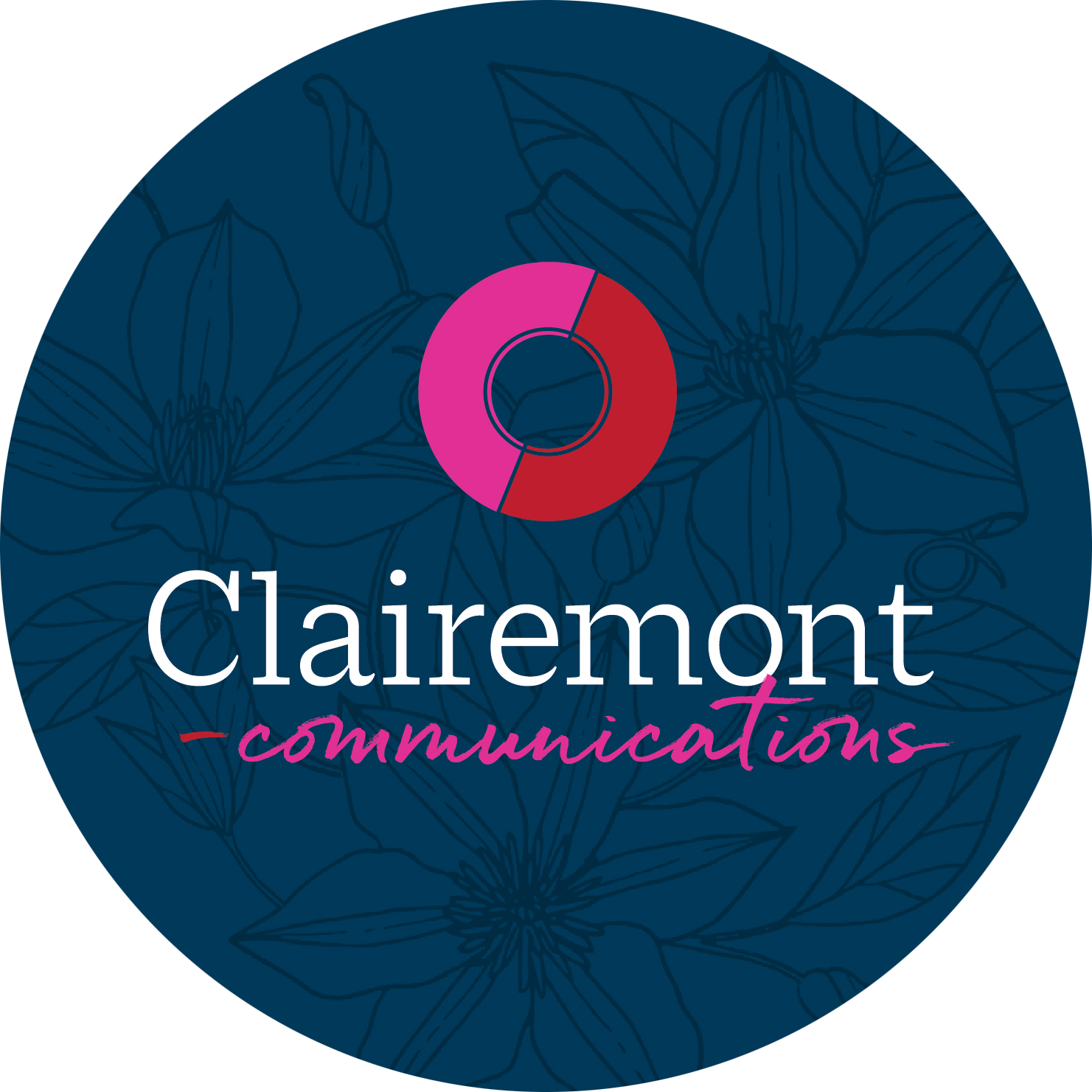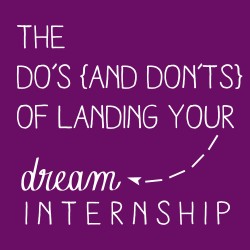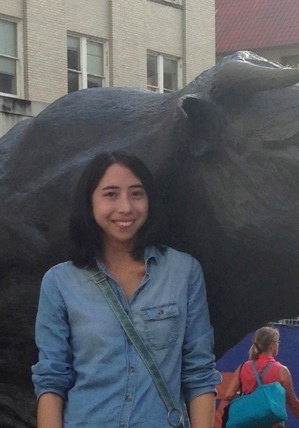Today, the North Carolina Public Relations Society of America is hosting its annual Public Relations and Marketing Seminar at the Friday Center in Chapel Hill. Each year, communications professionals from throughout the state attend the conference to listen to industry experts discuss a variety of topics and share strategy and tactical experiences that are shaping how we communicate for our companies and clients. This year, Clairemont’s Dana Hughens will conduct a session instructing students on the do’s and don’ts of internship and job searches and interviews. In preparation for this session, we asked our interns – Sam Halle, Margot Pien and Kate Fedder – what is your best advice for landing an internship? Here’s what each had to say:
If the folder on my computer littered with countless cover letter and resume files is any indication, the internship search can be a draining numbers game. And, while it’s true that you can’t control each outcome, you can control whether or not you show your potential and best self to a prospective employer. Here are a few simple ways I’ve learned to do this:
Check (and then double and triple check) for typos. This goes for both grammatical and spelling errors. Applying to positions at multiple companies? Avoid the copy-paste faux pas by making sure the company and contact names are correct too. For jobs and internships in the industry, it also doesn’t hurt to get reacquainted with your good friend the AP Stylebook.
Study up! Research both the company and specific position you are applying for. This will allow you to tailor the language of your cover letter or introductory email, as well as the experiences highlighted in your resume. Oftentimes, I’ll tweak the word choice throughout my resume to better fit each position. It should go without saying that research is an absolute must before an interview!
Thank you’s aren’t optional. When someone has taken the time to consider you as an applicant, it’s important to show that you’re grateful. This applies to email, phone and in-person correspondence. Importantly, you can use the thank you note following an interview to really drive home why you’re a great fit for the position.
Google yourself and make sure you’re happy with the results. Companies will search for you, so make sure your social media profile pictures are appropriate. If your account is public (and even if it isn’t), you should ask yourself if you’re comfortable with your future co-workers viewing your tweets, photos and posts. After all, your Internet presence is a reflection of who you are.
Use your resources. Check out what’s available at your university’s career center. Not a strong interviewer? Go to an interview workshop or participate in a mock interview. Struggling with your resume or cover letter? Most career advisors will review these and offer suggestions. Overwhelmed with the job/internship search? Most schools offer an online portal with hundreds of opportunities for students just like you. LinkedIn is also a helpful place to find connections.
Be positive and persistent. It’s hard work to find work, but in the end, it will all pay off. Remind yourself of that throughout the application, interview and follow-up process. Keep track of deadlines, try your hardest to avoid the procrastination bug and get excited for interviews. My pre-interview ritual? Review my resume and then blast Hakuna Matata.
I’ve had the opportunity to intern at a few wonderful companies, and have learned a lot from the application process. For every acceptance letter I have received, of course there just as many – if not more – internships or jobs that I have not gotten. That’s the nature of the game. Here are some useful tips that I’ve learned along the way:
Don’t use your cover letter to rehash everything from your resume. You can refer to it, of course, but use this chance to really catch your potential employer’s attention. Try to tell them something about yourself that they wouldn’t know from reading your resume.
Show your creativity/demonstrate your expertise. If you say that you are an experienced graphic designer, then design your cover letter and resume. I used InDesign to make a resume a few summers ago and ultimately landed the internship I wanted. My employer said that my resume design caught his eye.
Send follow up emails that don’t simply say “thank you for the interview.” Take this chance to re-iterate your interest in the company and explain why you’re the best candidate.
Tailor your resume to the job you’re applying for. If you want to intern at an advertising agency, they probably don’t care about your stint babysitting in high school. Make your resume relevant for each job opportunity.
If you direct your employer to any of your social media sites, make sure they’re professional. Don’t provide your Twitter handle if your tweets consist of you complaining about school and posting party pictures. Consider creating a separate professional account if needed.
In May of 2014, I will graduate from the University of North Carolina at Chapel Hill with a bachelor’s degree in Journalism and Mass Communications specifically focusing in Public Relations. At this stage in my life, I constantly worry about whether I will find a job when graduation rolls around. This past summer, I had the opportunity to intern for Clairemont and was lucky enough to continue the internship into this fall. Here are just a few tips I’ve found helpful in landing past internships:
Use the career services at your school. You’d be surprised how many opportunities your university offers to help you find a job or internship. Take the chance to practice interviewing by doing a mock interview. The more practice you have, the more comfortable you will feel during the real deal. Don’t wait until the week before summer break to look for an internship or the week before graduation to talk about career opportunities. Go talk to an advisor and have them look over your resume. Also, most universities have databases where you can search for alumni in your desired profession who you can reach out to for advice.
Network. Everyone I’ve ever talked to says finding a job in today’s world comes down to who you know. Try to connect with as many people as you can and reach out to later. If you don’t have a LinkedIn account, go ahead and make one – you’ll need it!
Do your research about the company beforehand. Be prepared and knowledgeable about the company so you can ask the interviewer at least two good questions. The interviewers are seeing if you are right for the job, but you should also ask questions to make sure the company is a good fit for you. The more you know about a company during an interview, the better off you are.
Be persistent and follow up. Send your resume and cover letter out to any company that interests you. If you don’t hear back within two weeks, send a follow-up email expressing how interested you are in the position.
Check and recheck emails you are sending to companies. Nothing looks worse and more unprofessional than having typos and bad grammar throughout an email. These emails as well as your resume and cover letter are the first impressions the company will have of you so make them flawless.





Thanks to our wonderful interns for contributing these smart tips! Also, thanks to the students who attended my student-only session yesterday. What a sharp group! I knew things were going to go well when every single student attendee passed the handshake test!